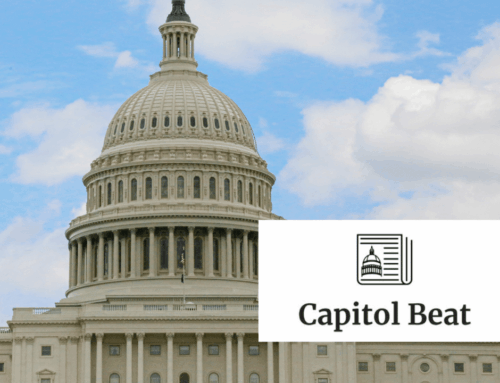With the clock counting down to the end of 2015, there is the usual flurry of activity in Congress to put together some kind of deal on the so-called “tax extenders.” This is a list of about 55 individual tax breaks that are technically temporary, but that Congress repeatedly renews, usually for a year or two, sometimes retroactively. Putting aside the merits of the individual provisions, the process is nothing more than a way for both parties to provide tax cuts to specific groups without having to own up to their true costs.
This year, lawmakers would like to make permanent some of the extenders the House Ways and Means Committee took up earlier this year, including the research and development credit and bonus depreciation. While I am willing to acknowledge that there is some merit in putting an end to the bogus routine of “temporarily” extending these provisions, the plan under discussion includes no accompanying offset to pay for the proposed changes.
Bonus depreciation, a favorite of Republicans, was enacted as a stimulative measure in 2008, and allows businesses to write-off half the cost of new capital investments immediately, instead of deducting them over time. This one provision would cost a whopping $270 billion over the next decade. Democrats in turn want to permanently expand the Earned Income Tax Credit and the Child Tax Credit, also with no offsets. Considering that all of the costs of this package would go right onto the federal debt, the final tally, including interest payments on the new debt, could approach $1 trillion over the next decade (and more after that).
All of this needs to be viewed in the context of general tax reform, which Congress has been flirting with for several years now. I have written many times in the past about the need to rid the tax code of various deductions and exemptions that narrow the tax base and distort decision-making. The tax extenders list includes many provisions that should be eliminated permanently, such as the special tax rules for NASCAR tracks, movie and television productions, and for race horse owners. And while there has been some rumors of trimming some of these temporary provisions as part of a deal, Congress and taxpayers would be better served by rolling this up into a broader tax reform effort.
First, the tax extenders charade is an outgrowth of larger, underlying problems in the tax code. For example, many of these business tax breaks that target specific taxpayers are an attempt to reduce the effective tax rate actually paid by businesses in the U.S. because the statutory corporate tax rate is 35 percent, among the highest in the world. But singling out specific groups with various provisions makes the tax code more complicated and less fair. Not to mention that the whole idea of tax breaks influencing investment decisions is completely undermined by their temporary status – how can a tax incentive influence behavior when it is enacted retroactively?
The cost of reducing the statutory corporate rate from 35 percent to 25 percent, as has been proposed in the past, is about $1 trillion, which brings us to the next problem. On a more cynical note, making some of the temporary tax breaks permanent artificially reduces the costs of broader tax reforms in the future, at least on paper. This is because eliminating these permanent tax breaks, which are not technically part of the baseline now because they are temporary, would count as new revenue Congress could use to pay to lower other taxes. Never mind that none of the costs of making the temporary provisions permanent were paid for to begin with.
There are lots of pieces of legislation that become vehicles for different giveaways and favors for various interests, but the tax extenders package is perhaps the most egregious example. Not only is it just a laundry list of tax breaks for various taxpayers, but its entire reason for being is to sidestep responsible budgeting. Congress needs to get out of the business of doing temporary tax extenders, permanently.










